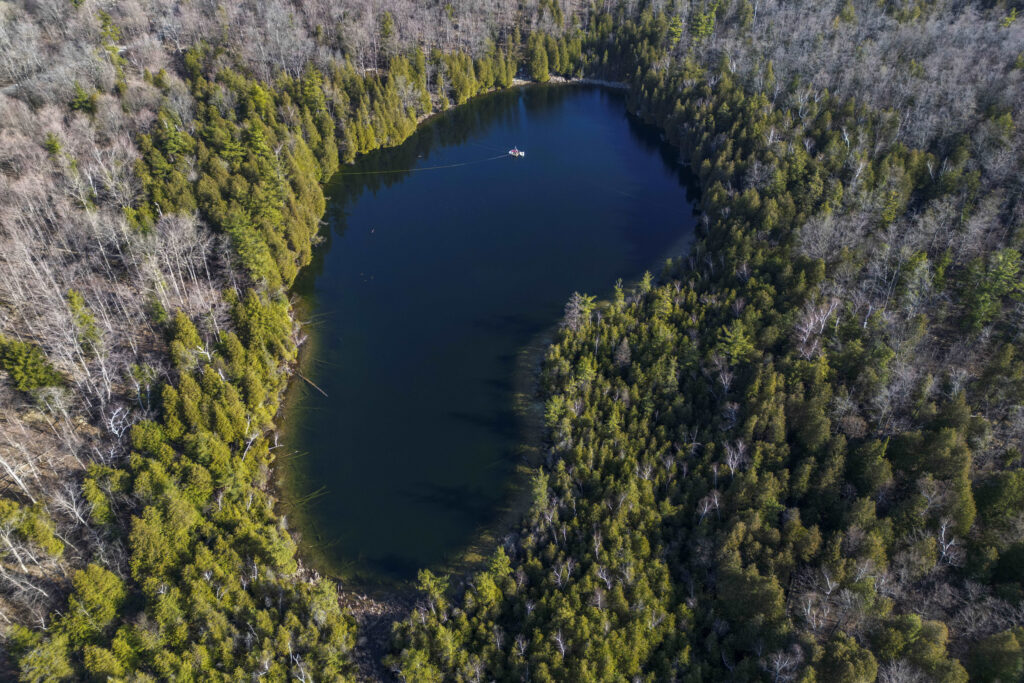CNN drops the platitude that “it’s not too soon to look ahead to summer weather, especially when El Niño – a player in last year’s especially brutal summer – is rapidly weakening” and will soon essentially disappear. But “El Niño’s disappearing act doesn’t mean relief from the heat. Not when the world is heating up due to human-driven climate change. In fact, forecasters think it could mean the opposite.” Yeah. Could. Unless it doesn’t. And are these the same forecasters who didn’t see the 2023 heat spike coming? While the CNN author makes some valid points about summer El Niñas not reliably meaning cooler, of course she’s holding a climate hammer so it’s “bang bang bang” because everything looks like a nail: “Then there’s the fact that these climate phenomena are playing out in a warming world, raising the ceiling on the extreme heat potential” and “Current summer temperature outlooks for the US are certainly bringing the heat.” But what if the summer isn’t unusual? What if it’s cooler than 2023? Well they also predict that “The strengthening La Niña conditions, coupled with ocean temperatures which have been at record highs for over a year, could supercharge the Atlantic hurricane season.” Yeah. Could. Unless it doesn’t. But anyway, they predicted two climate disasters. So if one or both don’t materialize, is it evidence that there’s no crisis? Or just “Wait till 2025, oh boy”?
This lamenting bad weather before it even hits is typical. In mid-April Heatmap wrote a piece entitled “The Hurricane Bookies/ Will America’s luck hold in 2024? The oddsmakers – that is, scientists – have a bad feeling.” And you’ll note right away an assumption dressed as fact: that the lack of powerful hurricane seasons in the U.S. has been “luck”. After all, we’re positively asking for Gaia to strike us down, right?
In one sense it has been luck. The U.S. gets a lot of bad windstorms and always has, and it’s nice when they have a quiet year. But in another sense, it embodies the false claim that hurricanes have been getting worse due to man-made climate change, or simply statistically, so the fact that they haven’t is this weird run contrary to the odds.
We say false because if there’s one kind of bad weather we really do have good historical numbers on going back more than a century, it’s hurricanes in the U.S. And there’s no trend, or rather there is, but it’s slightly down with considerable variation. Alarmists don’t like those statistics and try to make them go away. For instance a couple of years back the New York Times took the fact that while all categories of hurricane are declining worldwide, minor ones seem to be decreasing a bit faster than major ones so the proportion of the latter increased a bit, and turned it into hurricanes getting worse. No, it’s just your math skills. And back in February Euronews tried to convince us that:
“A handful of super powerful tropical storms in the last decade, and the prospect of more to come, has experts proposing a new category of whopper hurricanes: Category 6. Studies have shown that intense tropical storms are getting more intense because of climate change. So the traditional five-category Saffir-Simpson scale, developed more than 50 years ago, may not show the true power of the most muscular storms.”
Oh. Studies have shown. Though one paragraph later it’s “study” so their math skills aren’t exactly shining either. Instead they say:
“It’s not that there are more storms because of climate change. But the strongest are more intense. The proportion of major hurricanes among all storms is increasing and it’s because of warmer oceans, says University of Miami hurricane researcher Brian McNoldy, who wasn’t part of the research.”
As noted, what’s really happening is that major storms are decreasing, just slightly less than storms overall are decreasing. But who’s going to panic if you say that, other than your editors? Besides, a “handful” doesn’t amount to much, given that history is littered with powerful storms and prehistory doubtless as well. And as Roger Pielke Jr. has pointed out, the IPCC seized on a recent (2018) paper that unlike all others claimed “normalized” storm damage, that is, adjusted for population and wealth, had been getting worse that was based on a massive tendentious data blunder by NOAA.
If you don’t flub the data, storm damage isn’t getting worse, meaning storms aren’t. And by the way a Congressperson once had Pielke investigated by his own university for pointing it out; that’s how much alarmists hate this data.
To get back to the original “luck” claim, the U.S. hasn’t had a lot of hurricanes lately and “climate change” isn’t making them worse. So it’s not “luck” that the U.S. hasn’t had a lot of hurricanes lately, in the sense of hubristically defying the climate gods employed at various newspapers and government agencies and awaiting nemesis. As for CNN, anybody today can predict an onslaught of bad weather caused by selfish human wrongdoing and grab a headline. (For instance “Ski resorts’ era of plentiful snow may be over due to climate crisis, study finds” in the Guardian.) And if it doesn’t happen, nobody but us will remind you.
Euronews had earlier tried to milk El Niño, warning that:
“El Niño is starting to dial down – but it’s not over yet, the World Meteorological Organization (WMO) says. The weather phenomenon that has worsened heatwaves, droughts and heavy rain since last June peaked as one of the five strongest on record in December. There is a 60 per cent chance it will continue to fuel high temperatures and extreme weather events until May, according to WMO.”
Now hang on. You’re saying it was El Niño, not warming, that “worsened heatwaves, droughts and heavy rain since last June” which didn’t even happen? Or was it both? Can bad weather have many fathers? Even if it’s not getting worse?
Heatmap is having none of it. Months before we have enough data to know anything meaningful, they write:
“the trickle of headlines this year has been nothing short of alarming. In addition to CSU’s prediction, North Carolina State University issued a forecast of between 15 and 20 named storms in 2024, meaning we could potentially tick well above the 1991-2020 average of 14 per year. On Wednesday, the Weather Channel upped the ante with a new estimate of 24 named storms. AccuWeather Lead Hurricane Forecaster Alex DaSilva told me his team estimates there is a 15% chance of 30 or more named storms this year – enough to break the record set in 2020 and exhaust the World Meteorological Organization pre-prepared list of 21 storm names, forcing it to dip into its new and never-before-used ‘supplemental’ list.”
Yeah. Could. Unless it doesn’t. And indeed it could happen, not least because we’re now better at detecting them when they happen so the count goes up without the number doing so.
If it does go up they’ll say “Told you so”. If it doesn’t, they’ll tell you again next year that it “could”.
P.S. Heatmap also admits the models are rubbish, in the apparent belief that we should therefore be even more frightened by their predictions: “Warm water, of course, is hurricane Red Bull – it can increase a storm’s destructive potential, taking forecasters by surprise. In addition to the waning El Niño and the likely start of a La Niña – which will make the wind conditions more favorable to Atlantic storm formation – all the agencies I spoke with cited the sea-surface temperatures as a concerning complication in their predictive models.” A concerning complication. We just aren’t concerned.



To the climate evangelists everything is caused by climate change....though if we have a cooling trend that would be, well, disconcerting because when they SAY climate change, they MEAN global warming! As I said, these people are nothing more than tv evangelists!
In 2007, I proposed a short, elegant proof that global warming should produce fewer hurricanes:
1. Global warming causes the poles to warm two or three times faster than the equator. This creates a flatter temperature gradient by latitude.
2. Hurricanes are the product of a collision between warm and cold air masses.
3. It follows that a flatter temperature gradient, even if generally warmer, will produce fewer hurricanes.
I have never seen a refutation of this proof. Someone once responded that MIT climatologist Richard Lindzen has made the same argument. Why don't contrarians pick up on this idea? Genuinely curious.
The first reference to "the summer El Nina" is confusing. It needs to be fixed. There is El Nino and La Nina, but no "El Nina" or "La Nino." Spanish grammar.
Wonder how many hurricanes occured and were not detected,because they happened on the open sea or sparsely inhabited areas?In the last say,50-100 years?